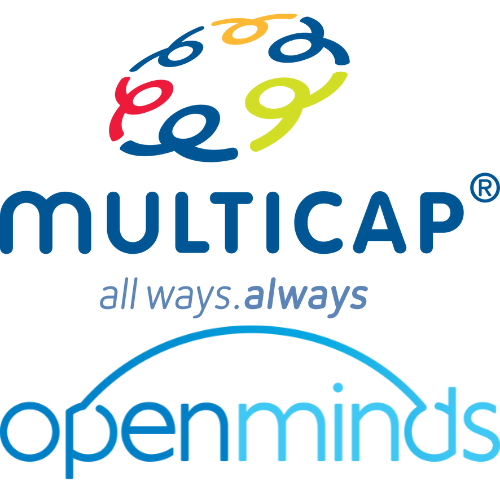
Sunday, 27 July 202510:45 -12:00 PMWest End 1 |
Addressing Special Education Teachers’ support needs: Insights from the Australian context
Merryll-Anne Cobb-Clark & Hoa Nguyen University of New South Wales Abstract: Special education teachers (SETs) support a quarter of Australian students (ACAR, 2024), yet are underrepresented in national policy (e.g., Teacher Workforce Action Plan, 2022). and research (e.g., Wyatt & O’Neill, 2021). This has led to limited understanding of their support needs. Many behaviour analysts collaborate with SETs to support students with diverse needs. Effective collaboration is undermined by expectations exceeding capacity, leading to ineffective practices and procedural drift. To combat this, understanding SET barriers, including resource constraints and conflicting expectations are necessary. This study explores systemic factors shaping SET environments. Semi-structured interviews with Australian SETs examine their pathways into special education, responsibilities, current supports, gaps, and career intentions. Data were coded in NVivo using reflexive thematic analysis, revealing key barriers impacting SETs. Findings highlight SETs’ specialized skills, sometimes developed informally on the job, reflecting training gaps and misunderstanding of their roles. Peer and leadership challenges, unmet resource needs, and conflicting expectations force SETs into filling a sociopolitical gap as case managers inside and outside the education system. These challenges impact workload, wellbeing, and career intentions. Further research is crucial to address these gaps. Target Audience: Behaviour Analysts and teachers Learning Objectives: At the conclusion of this presentation, participants will be able to
|
Using Applied Behavioural Analysis Principles to Guide Psychology Interventions for School Aged ChildrenHannah Yates The Learning for Life Autism Centre Abstract: Many autistic children and adolescence engage with a psychologist to support social skill development, emotion regulation and manage co-occurring mental health difficulties (Parrella et al., 2024). However, barriers to appropriate and effective psychological support exist (Pantazakos, 2023). Addressing these barriers requires psychologists to follow best practice guidelines with autistic clients. This includes ensuring goals are relevant and meaningful to the child and their family, planning for and targeting generalisation of skills, involving relevant stakeholders in intervention, and adjusting and evolving supports as clinically indicated (Trembath et al., 2022, Evans et al., 2022). Applying the principles of Applied Behaviour Analysis (ABA) will assist psychologists to achieve these best practice guidelines. They can guide assessment of baseline and prerequisite skills, the use of task analysis to sequence targets, and using regular assessment and monitoring measures (e.g. direct observation across environments). Additionally, a model of service which is flexible and adapts to the needs of the child and their family is also key. Practical techniques to achieve this flexibility and methods for psychologists to apply ABA principles to meet the best practice guidelines will be outlined. How these processes help ensure each individual child, and their family receive effective intervention and support will be outlined. Target Audience: Allied Health Professionals Learning Objectives: At the conclusion of this presentation, delegates will be able to describe how the principals of applied behaviour analysis can be applied to psychologists working with autistic children and young people. |
Supporting in-service teachers to deliver Inclusive EducationSarah Wood Monash University and The Learning for Life Autism CentreAbstract: An Inclusive Education (IE) policy-to-practice gap exists in Australia (Kefallinou et al. 2020). While policies promote IE, many schools find effective implementation difficult (Jenkin et al., 2018). IE schools support all students by delivering inclusive teaching practices – many of which are grounded in principles of applied behaviour analysis. Teachers are pivotal in this process, yet they often report inadequate pre-service training (Fox et al. 2022) and difficulty implementing IE practices (Serry et al. 2022). Research has predominantly concentrated on equipping pre-service teachers with the skills to foster IE environments (Tristani and Bassett-Gunter (2020). However, the gap persists, possibly because in-service teachers—those actively working in schools— experience difficulty selecting, adapting, and implementing IE practices. Moreover, inclusion is an ongoing endeavour requiring schools to adapt continuously to their students' needs, complicating its achievement and measurement. The results of a scoping review examining components of teacher in-service professional development (IPD)in IE will be discussed. The duration, topics, and instructional methods of IPD programs will be covered, alongside both student and teacher outcomes. Clear definitions of the components will be provided and linked to the reported outcomes. Practical strategies for delivering IPD to enhance teachers’ abilities to support all students will also be provided. Target Audience: Education Professionals Learning Objectives: At the conclusion of this presentation, delegates will be able to describe the barriers to creating an inclusive education environment and identify methods to deliver teacher training in the area of inclusive education. |




.png)


